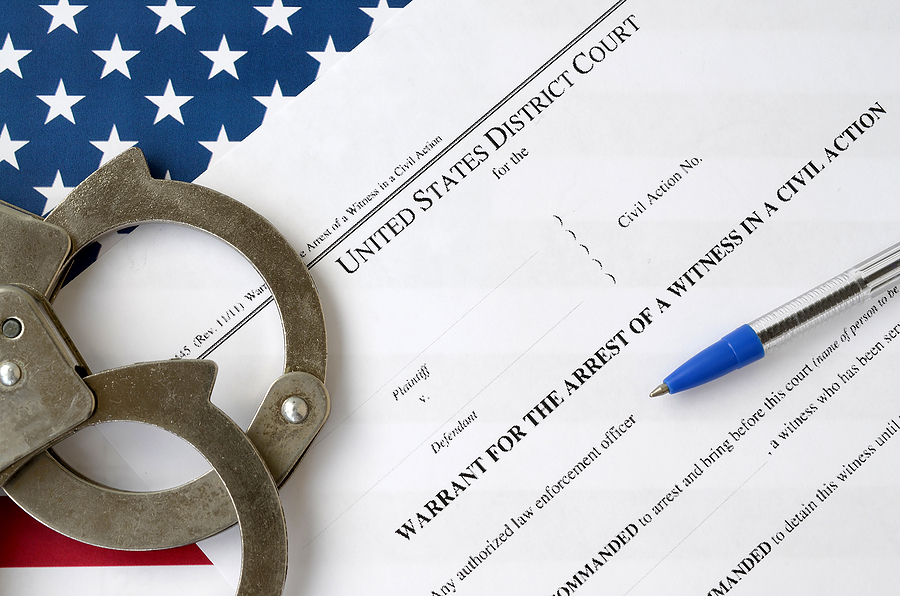Living with an outstanding arrest warrant is like carrying a heavy weight that you can’t put down. The constant fear of a traffic stop turning into a public arrest can be paralyzing. However, taking control of the situation by surrendering voluntarily is often the most strategic move you can take for your legal future.
This guide provides a comprehensive walk-through of the surrender process in Lebanon, Indiana, specifically for the Boone County Jail. By preparing ahead of time, you can navigate the system with dignity and significantly reduce your time in custody.
TL;DR: Key Takeaways:
Voluntary surrender is better: It shows the court you are responsible and may help with bond conditions.
- Preparation is key: Contact a bail bondsman before you go to the jail to speed up your release.
- Know the location: Surrenders happen at the Boone County Jail, 1905 Indianapolis Avenue, Lebanon, IN.
- Leave prohibited items at home: Do not bring cell phones, weapons, or tobacco into the facility.
Table of Contents:
- Understanding Warrants in Boone County
- Benefits of a Voluntary Surrender
- How to Prepare for Your Surrender
- The Step-by-Step Surrender Process
- Frequently Asked Questions
- Quick Recap Checklist
- Prearranged Bail in Lebanon

Understanding Warrants in Boone County
Arrest warrants in Lebanon are managed by the Boone County Sheriff’s Office and processed at the county jail. When a judge in Boone County issues a warrant—whether for a probation violation, a missed court date (bench warrant), or a new criminal charge—it remains active until served. This means law enforcement officers in Lebanon and surrounding areas have the authority to arrest you on sight.
In Boone County, warrants are processed at the Justice Building. While the administrative offices operate during standard business hours, the jail facility itself processes inmates 24/7. Understanding this schedule is crucial because surrendering at a strategic time (typically early morning on a weekday) can sometimes influence how quickly you are processed and released.
Benefits of a Voluntary Surrender
Turning yourself in demonstrates responsibility to the court and eliminates the embarrassment of a public arrest. There are significant legal and personal advantages to handling a warrant on your own terms:
- Safety and Dignity: You avoid the risk of being arrested at your workplace, in front of your family, or during a routine traffic stop.
- Perceived Flight Risk: Judges often view voluntary surrender as a sign that you are not a flight risk. This can sometimes lead to more lenient bond conditions or a lower bail amount during your initial hearing.
- Control Over Timing: You can arrange for childcare, time off work, and bail money in advance, rather than scrambling to handle these logistics from a holding cell.
How to Prepare for Your Surrender
Secure a bail bondsman and legal counsel before you ever step foot on jail property. Walking into the police station without a plan can result in a longer stay than necessary. Follow these steps to prepare:
- Verify the Warrant: Confirm the warrant is active. You can often check online via the Boone County Sheriff’s website or mycase.in.gov.
- Contact a Bail Bondsman: In Boone County, you can use a surety bond (hiring a bondsman) for many offenses. A bondsman can get the paperwork ready so they can post your bail immediately after you are booked.
- Hire an Attorney: A lawyer can guide you on whether you should speak to officers (generally, you should invoke your right to remain silent) and can sometimes negotiate surrender terms.
- Dress appropriately: Wear comfortable clothing. Avoid belts, drawstrings, or jewelry, as these will be removed.
- Leave contraband behind: Do not bring cell phones, weapons, drugs, or even cigarettes. Bringing these into a jail facility can result in new felony charges.
The Step-by-Step Surrender Process
The process involves arriving at the correct jail entrance, undergoing booking, and posting bond. Here is what you can expect when you arrive at the Boone County Jail:
- Arrival: Go to the Boone County Jail at 1905 Indianapolis Avenue, Lebanon, IN 46052.
- Entry: Due to ongoing construction or facility updates, entry procedures can change. Look for signage directing you to the intake area. Current reports indicate inmate needs are often addressed at the 187B Door located on the east side of the building.
- Identification: You must bring a valid photo ID. Without it, the release process can be delayed significantly as they verify your identity.
- Booking: Officers will pat you down, take your mugshot, and fingerprint you. They will collect your personal property and store it until your release.
- Bonding Out: If your warrant has a pre-set bond amount (common for non-violent misdemeanors and lower-level felonies), you can bond out immediately after booking. If you arranged a surety bond, your bondsman will handle the payment.
Note: Cash bonds can also be paid via the “Allpaid” service (PLC #6808) using a credit card, though this incurs a fee.
Frequently Asked Questions
Do I need a lawyer to surrender?
While not strictly required by law, having an attorney is highly recommended. They can advise you on your rights, prevent you from making self-incriminating statements during booking, and represent you at your initial hearing.
How long will I be in jail?
If your warrant has a set bond and you have pre-arranged payment, the process can take anywhere from 1 to 4 hours depending on how busy the jail is. However, if your warrant is for a violent offense or a high-level felony (Level 4 or higher), you may be held without bond until your initial hearing before a judge.
Can I surrender on a weekend?
Yes, the jail accepts surrenders 24/7. However, if you cannot bond out immediately and must see a judge, surrendering on a Friday night means you will likely stay in jail until court reopens on Monday or Tuesday. Tuesday through Thursday mornings are often recommended for smoother processing.
Quick Recap Checklist:
- Verify the warrant status online.
- Contact a criminal defense attorney.
- Call a bail bondsman to pre-arrange bail.
- Memorize the jail address: 1905 Indianapolis Ave, Lebanon, IN.
- Bring a valid government-issued photo ID.
- Leave your phone, wallet (except for ID/cash), and valuables in your car or at home.
- Dress in comfortable, simple clothing (no drawstrings).
Take the First Step Toward Freedom
Discovering you have an arrest warrant can be a frightening and stressful experience, but ignoring it will only complicate the situation and increase potential legal risks. By choosing to turn yourself in voluntarily, you demonstrate responsibility and take back control of the circumstances. This proactive step allows you to begin the process of resolving your legal issues on your own terms, rather than waiting for an unexpected arrest.
If you or a loved one needs to surrender for a warrant in Boone County, do not go it alone. Speed up your release time by setting up your bail bond ahead of time. Contact us today for fast, prearranged bail bond services in Boone County, Indiana
Related Post: Full Guide to Bailing Someone Out of Jail in Lebanon Indiana









